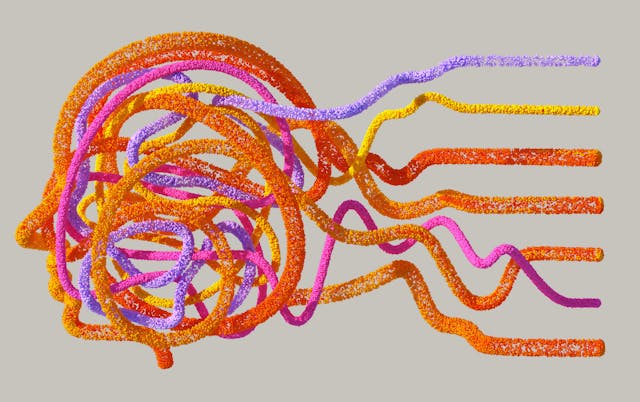You’ve probably heard the saying, “Trust your gut,” but did you know that your gut does more than just digest food? Scientists often refer to the gut as the “second brain” because of its powerful connection to the brain in your head. This connection, known as the gut-brain axis, plays a crucial role in your mental, physical, and emotional well-being. But what exactly is the gut-brain, why is the gut called the second brain, and how can you activate this powerful connection for better health? Let’s dive in.
What is the Gut-Brain?
The gut-brain refers to the complex network of nerves, hormones, and signals that link your gastrointestinal tract (gut) to your central nervous system (brain). This system is regulated by the enteric nervous system (ENS), which is embedded in the walls of your digestive tract. The ENS contains over 100 million neurons, making it the largest collection of neurons outside the brain.
Essentially, your gut has its own “brain,” capable of functioning independently of your central nervous system. It controls digestion, manages the release of enzymes, and even communicates with your brain about hunger, stress, and mood.
What is the Gut-Brain Connection?
The gut-brain connection refers to the bidirectional communication between your gut and brain. This happens through the vagus nerve, one of the longest nerves in your body, and through chemical signals like hormones and neurotransmitters.
The gut produces about 90% of your body’s serotonin—the “feel-good” neurotransmitter—and also influences other chemicals like dopamine and gamma-aminobutyric acid (GABA), which impact mood, sleep, and mental health.
Research shows that the gut-brain connection plays a vital role in:
- Regulating stress responses.
- Managing emotions and mental health.
- Controlling appetite and digestion.
- Boosting immune function.
When this connection is disrupted—due to poor diet, chronic stress, or gut imbalances—it can lead to issues like anxiety, depression, irritable bowel syndrome (IBS), and even autoimmune disorders.
Why is the Gut Called the “Second Brain”?
The gut is called the “second brain” because of its autonomous control over critical functions and its ability to communicate directly with your brain. Here are the main reasons why the gut earns this title:
- Independent Nervous System
The enteric nervous system operates independently, controlling digestion and gut motility without needing instructions from the brain. - Neurotransmitter Production
The gut produces neurotransmitters like serotonin, dopamine, and GABA, which influence your mood, sleep, and overall mental health. - Vagus Nerve Communication
The vagus nerve allows real-time communication between the gut and brain, influencing stress responses and emotional regulation. - Gut Microbiome’s Role
Trillions of microbes in your gut produce chemicals that affect brain function, cognition, and even decision-making. An imbalance in these microbes can lead to inflammation, brain fog, and mood disorders.
How Do You Activate Your Gut-Brain Connection?
The good news is that you can strengthen and activate your gut-brain connection through intentional lifestyle changes. Here’s how:
1. Eat for Gut Health
- Include probiotic-rich foods like yogurt, kefir, sauerkraut, and kimchi to boost good gut bacteria.
- Eat prebiotic foods like bananas, garlic, onions, and whole grains to nourish your gut microbes.
- Avoid processed foods, sugar, and artificial sweeteners, which can harm gut bacteria.
2. Manage Stress
Chronic stress disrupts the gut-brain connection. Practice relaxation techniques like:
- Meditation or mindfulness.
- Deep breathing exercises.
- Yoga or tai chi.
Reducing stress improves vagus nerve function, strengthening the communication between your gut and brain.
3. Get Enough Sleep
Poor sleep can weaken your gut-brain axis. Aim for 7-9 hours of quality sleep per night to support both gut health and mental clarity.
4. Stay Physically Active
Regular exercise promotes a healthy gut by stimulating blood flow and increasing beneficial bacteria. Activities like walking, swimming, and strength training are great for overall gut-brain health.
5. Stay Hydrated
Dehydration affects digestion and nutrient absorption, which can weaken your gut-brain connection. Drink enough water throughout the day to maintain gut health.
6. Consider Supplements
- Probiotics can restore gut balance if you’re dealing with an imbalance.
- Omega-3 fatty acids support brain health and reduce gut inflammation.
7. Foster Emotional Health
Build positive relationships, practice gratitude, and seek therapy if needed. Emotional well-being significantly influences your gut health through the gut-brain connection.
Signs of an Imbalanced Gut-Brain Connection
You might have a disrupted gut-brain connection if you experience:
- Persistent digestive issues like bloating or diarrhea.
- Unexplained anxiety or depression.
- Chronic fatigue or brain fog.
- Frequent food intolerances or sensitivities.
- Poor immune function or recurring infections.
If these issues sound familiar, focusing on gut health could transform how you feel mentally and physically.
Key Takeaways
The gut-brain connection is a fascinating and vital aspect of overall health. Here’s what you need to remember:
- The gut, often called the “second brain,” plays a major role in your mood, mental health, and immunity.
- The gut-brain connection is mediated by nerves, hormones, and neurotransmitters like serotonin and dopamine.
- Strengthening this connection through diet, stress management, and lifestyle changes can significantly improve your physical and mental well-being.
Final Thoughts
Your gut is more than just a digestive organ—it’s a powerful system that influences your emotions, cognition, and overall health. Activating your gut-brain connection doesn’t require drastic changes; simple adjustments to your diet, stress management routine, and daily habits can make a world of difference.
Start paying attention to your gut, and you might just find that it holds the key to a healthier, happier you. Your “second brain” deserves as much care as your first!



Pingback: The Gut-Brain Connection Diet: How Food Impacts Your Mental Health - Wellness Readers Digest